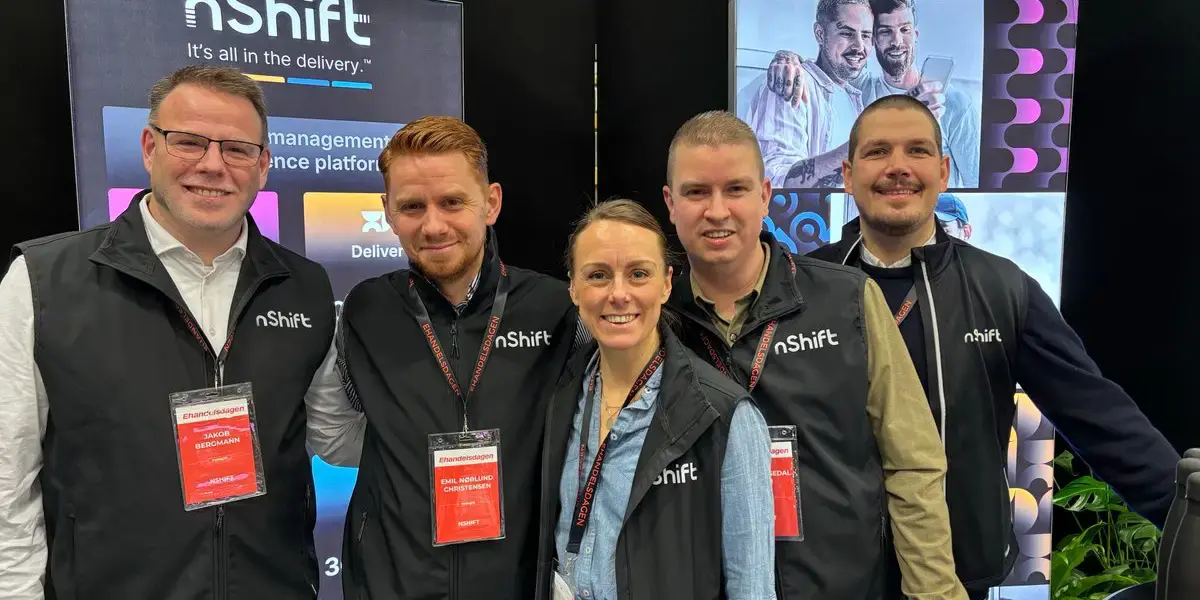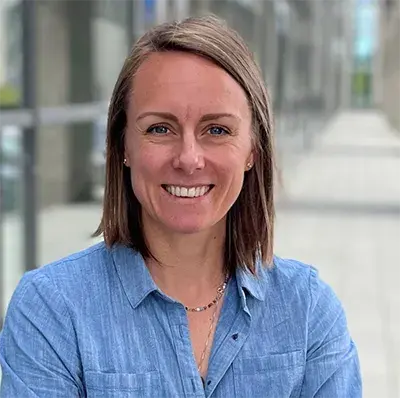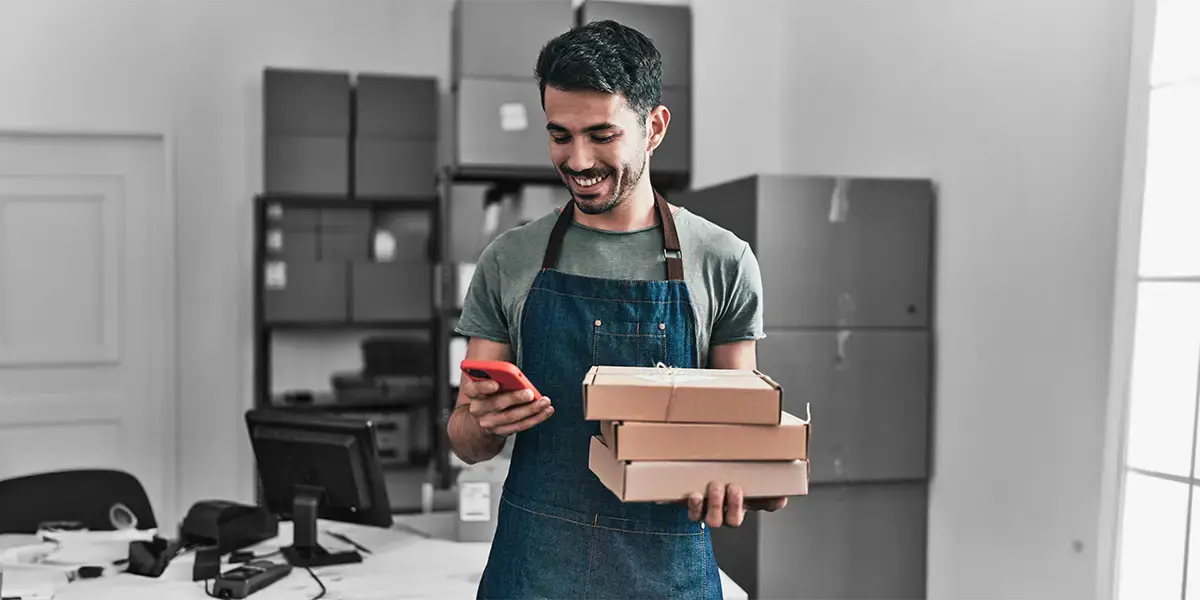
Since 2018, the previously abandoned upholstery factory in Laxå has been filled with voices, creativity, and laughter. It no longer echoes as empty as it has for many years. Instead, it is used for resource-efficient production, integration of new arrivals through work opportunities, and to counteract overproduction, which is a huge global problem.
Promoting a circular consumption model and sustainability, in particular, were some of the factors that led Angelo da Silveira, founder of the clothing brand Diemonde, to bring home production from China to Laxå (Sweden). Today, Fugeetex is a nShift Return partner that our customers can utilize together with our new Rescue platform.
Fashion brand Diemonde takes circular responsibility - brought life to Fugeetex
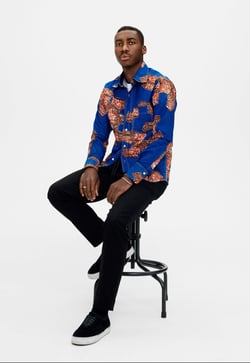
2018 was the year when Diemonde founder Angelo da Silveira (pictured), who is the founder of Fugeetex, had enough. Enough of dealing with the challenges that over-consumption contributes to. In other words: residual stock, expensive transport, and unnecessary climate impact.
Angelo says: "If you look at the resources needed to ship goods or samples, and traveling back and forth, it is neither efficient nor sustainable. A couple of years ago, I got tired of the unreasonable volume requirements [for off-shore production], which meant that far too large parts of the collections risk having to be sold at discounted prices, or in the worst case, discarded."
Instead, Angelo and his team at Diemonde began exploring the possibilities of creating a service for circular production that was resource efficient, while being local to minimize the transportation of products around the world. The pre-existing solutions on the market did not feel like a perfect match. Angelo and Yasaar soon realized that they needed to come up with a new solution by being creative.
The best solution we came up with was to create what we were missing ourselves, and that is when Fugeetex came to life.
Angelo da Silveira
CEO & Founder, Fugeetex
The Fugeetex company and its operations are run from Laxå in Sweden.
In the factory, Fugeetex functions as a micro-factory. Newly arrived refugees are offered to use pre-existing and develop new skills when working there. Since the start of Fugeetex in November 2018, 20 participants with various experiences in production, tailoring, or sewing have been part of the pre-study phase. 12 people were offered a job, of which six are still employed at Fugeetex.
To value and develop the knowledge and experience that already exists in the local area is important for the business and for existing integration issues, which is something the founders are passionate about. Employees are given financial opportunities to integrate into society.
On average, it takes about 8–11 years for foreign-born women to establish themselves in the Swedish labor market, while it takes ‘only’ 6–7 years for men according to the Swedish Public Employment Service's forecasts. If you also take the current pandemic into account, the numbers will increase further.
"By applying our model, we can reduce the time from arrival to integration and employment to only 1-2 years", Angelo says.
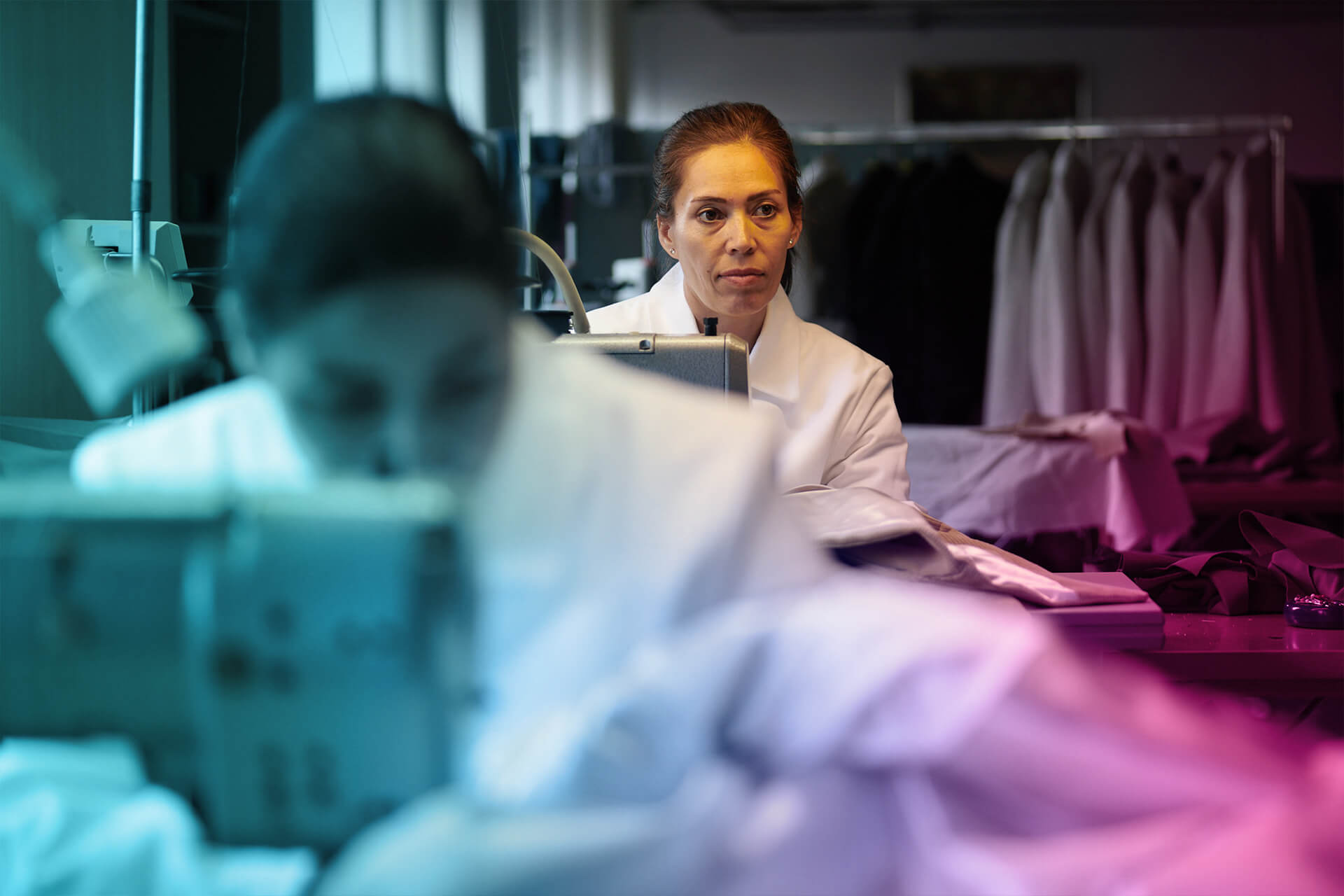
Angelo continues to talk about Fugeetex and the important work they do in the previously abandoned factory in Laxå:
"Fugeetex offers a resource- and cost-effective production model that counteracts overproduction and reduces the environmental footprint. By valuing and developing pre-existing skills in new arrivals, we transform the fashion industry's demand and needs into integration and employment. Today, our business aims to offer services like low-volume production, local production based on demand, as well as repair and reconstruction of clothing and plastics."
He continues,
"Foreign-born people in Sweden have an enormous competence in crafts and sewing. Despite the fact that there is a lot of expertise among newly arrived men and women, unemployment is increasing in parallel with the path to the labor market and further integration. When we started exploring the possibilities of moving production to a local site, we also needed to find the right skills to guarantee a qualitative end product", Angelo says.
For Fugeetex, it was obvious to fill the void by using the knowledge and skills that already exist for hiring newly arrived factories. Through this model, Fugeetex contributes to the financial independence of its employees and transforms them into residents (and taxpayers).
We have measured that our local on- demand model reduces environmental emissions by 80–90% compared to the same process off-shore.
Angelo da Silveira
CEO & Founder, Fugeetex
A climate-smart production model for circular fashion
One of the goals of Fugeetex's operations is to reduce the climate impact by exclusively producing new goods and collections on demand, minimizing transport and repairing, reusing, and recycling materials that are already in circulation.
"In production, we have measured that our local on-demand model reduces environmental emissions by 80–90% compared to the same process off-shore," says Angelo. "Currently, we have the capacity to handle up to 10,000 repairs a year, but our model enables us to grow by educating, training, and employing more people in line with the growing demand from the fashion industry."
The Fugeetex model obviously means higher production costs due to (and thanks to!) the rights for employees in Sweden in terms of minimum wage. All products produced and passed through Fugeetex factories have been handled under fair conditions.
Today, Fugeetex works primarily in the Scandinavian market but aims to establish operations across Europe in 2022. They would like more retailers and companies to use the model, and to make it available to everyone as they do not consider it exclusive to them.
Fugeetex is a Return Rescue partner
Fugeetex is a valued partner that, since 2018, does a fantastic job in many ways. Not only by challenging the entire fashion industry's business model, but also for the climate, the inclusion of new arrivals, and to reduce overproduction of clothing.
Haider Abdo, Head of nShift Return, is proud of the collaboration with Fugeetex and says:
“With our new module Return Rescue, we have the opportunity to help retailers extend the life of any product, take responsibility for the product throughout the life cycle, and establish a sustainable production circle. At the same time, we help consumers to sustainable behaviors. We are the best at software and want to work with the suppliers who are best at raw material handling, i.e. taking care of the goods that come back. Fugeetex is one of the few suppliers in the Nordic region, who can recycle, repair and reuse clothes and plastic through their factories in Sweden. Because they operate locally and plan to grow in Europe, no goods need to be shipped around the world. That is why Fugeetex is a great partner for us that we want to work with. ”
Our friends at Fugeetex also view the collaboration with nShift positively:
"Together with nShift Return, we see an opportunity to help more fashion companies implement a resource-efficient model for their value chain with high transparency and flexibility," concludes Angelo.
How the partnership between nShift Return and Fugeetex works
With Rescue and Fugeetex, a consumer can submit a return of an item long after the return window has closed.
The consumer returns the item for recycling/repair/reconstruction in the Return Rescue module and the item is then shipped to Fugeteex's factory instead of back to the e-retailer.
Once in the factory, Fugeetex handles the product based on the specific instructions agreed upon with the retailer. The product is then recycled, upcycled, or repaired and sent back to the consumer when the product is ready.
About the author



